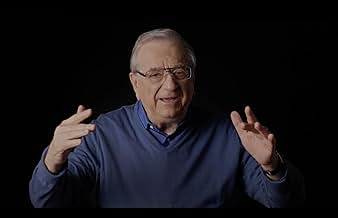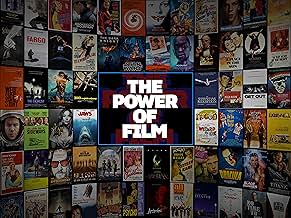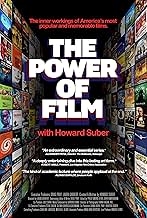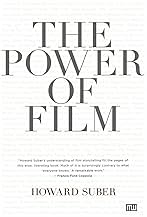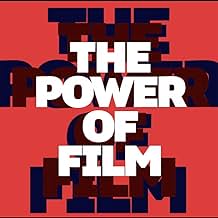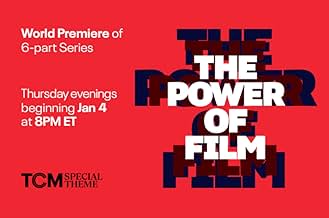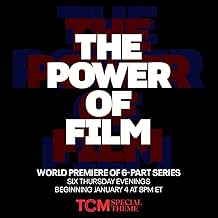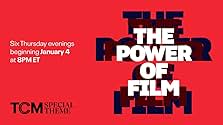Dives deep into the art of storytelling by examining the defining principles and inner workings of the most popular and memorable American films of all time.Dives deep into the art of storytelling by examining the defining principles and inner workings of the most popular and memorable American films of all time.Dives deep into the art of storytelling by examining the defining principles and inner workings of the most popular and memorable American films of all time.
- Star
Browse episodes
Featured reviews
This series offers some interesting things to think about but, it seems the professor's train of thought is all over the place. The same few films from more recent years are used from episode to episode, over and over as examples of what his point is. There are so many other films from the classic era that could have been used instead of so many repeat of contemporary films.
I does contain some interesting insights as to what might create a successful screenplay.
The video image of some of the clips at times has a strobing effect that was a bit off-putting.
I so wanted to love this series but it leaves me a bit flat.
I feel it was a missed opportunity to mine the wealth of film material from the past.
I've seen 5 of the 6 episodes so far.
I does contain some interesting insights as to what might create a successful screenplay.
The video image of some of the clips at times has a strobing effect that was a bit off-putting.
I so wanted to love this series but it leaves me a bit flat.
I feel it was a missed opportunity to mine the wealth of film material from the past.
I've seen 5 of the 6 episodes so far.
A collection of movie clips overlaid by narration which is shallow, says pretty much nothing of value and often contradicts itself. The professor will name a "pattern" (usually the vaguest possible theme like "family") and then proceed to illustrate it with examples of movies, hilariously including some, which do not actually feature the stated "pattern" at all.
You are better off watching amateur film montages on youtube, at least they focus on the movies themselves and do not add pretentious, yet meaningless voiceover.
The attempted analysis is very superficial and sometimes almost sounds like a parody. Like this gem of deep thinking: "It was a fatal accident, so it must have something to do with fate". Definitely a fine example of "those who cannot do, teach".
You are better off watching amateur film montages on youtube, at least they focus on the movies themselves and do not add pretentious, yet meaningless voiceover.
The attempted analysis is very superficial and sometimes almost sounds like a parody. Like this gem of deep thinking: "It was a fatal accident, so it must have something to do with fate". Definitely a fine example of "those who cannot do, teach".
I'm adding a review to counter a review from 2/1/24. I won't say that this reviewer's thoughts aren't valid. I just wanted to clarify an issue that may have been overlooked, so others have a clear understanding of what to expect.
In the first episode of the series (as he does in the forward of the book with the same title) Suber states that he is only commenting on a select group of popular and memorable movies, since these are movies that most people have probably seen and remember. They act as exemplars. The goal here isn't to provide insight to a wide range of movies; it is to discuss why we respond to movies so that we can apply those insights to the movies we personally remember best.
Having said that this is a series of lectures, with the professor talking into a interrotron camera rig and with select movie scenes used as illustration. I can see how that might not be entertaining for a lot of people and even though I really liked this, I did zone out from time to time.
Personally, I don't think this is really a series about movies. This is a series about audiences. I think a more apt title might have been The Power of Audiences, but who would watch that:)
In the first episode of the series (as he does in the forward of the book with the same title) Suber states that he is only commenting on a select group of popular and memorable movies, since these are movies that most people have probably seen and remember. They act as exemplars. The goal here isn't to provide insight to a wide range of movies; it is to discuss why we respond to movies so that we can apply those insights to the movies we personally remember best.
Having said that this is a series of lectures, with the professor talking into a interrotron camera rig and with select movie scenes used as illustration. I can see how that might not be entertaining for a lot of people and even though I really liked this, I did zone out from time to time.
Personally, I don't think this is really a series about movies. This is a series about audiences. I think a more apt title might have been The Power of Audiences, but who would watch that:)
Mind-numbingly boring and shallow, Professor Blabbermouth takes us into the world of film with nothing new to say while stating the incredibly obvious. If we only had to rely on what this guy says, I doubt anyone other than his immediate family would make it through this (I dropped out after one episode). There are a million film clips that prop up this bore, but they aren't enough to add up to entertainment. The first episode is completely all over the place and makes not much of a point, and the point made isn't much and hardly warranted forty minutes to tell. He should just write down his point on a 3X5 index card and let viewers watch a real movie.
I would much rather listen to Spielberg or Scorcese discuss the power of film. I felt that Dr. Suber just states the obvious. There weren't many unique insights.
For example, he'll discuss the story structure of a particular film verbatim and explain how common writing threads are used in various films. I found myself repeatedly saying, so? I'm watching this episodically on TCM. So far, episode two is the best but not enough to recommend it. I see it has received an 8.3 rating on IMDB which is very high marks, so I must be in the minority on this. See for yourself as it is watchable and has moments.
For example, he'll discuss the story structure of a particular film verbatim and explain how common writing threads are used in various films. I found myself repeatedly saying, so? I'm watching this episodically on TCM. So far, episode two is the best but not enough to recommend it. I see it has received an 8.3 rating on IMDB which is very high marks, so I must be in the minority on this. See for yourself as it is watchable and has moments.
Details
- Color
Contribute to this page
Suggest an edit or add missing content

